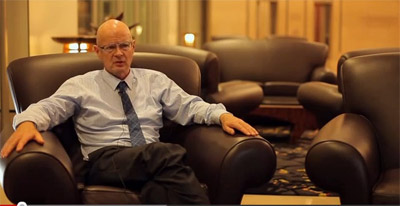Anthony Warren Aspect Interview

Anthony Warren Aspect Interview
Autism Spectrum Australia's (Aspect) annual comedy night will celebrate its 10th year this August! Australia's comedy greats will come together to raise funds and awareness for people living with an Autism Spectrum Disorder (ASD). Held at Sydney's popular Shangri-La on Thursday 9th August, the Aspect Comedy Night will be the biggest yet with loved comedians, a delicious 2-course meal, drinks and a lot of laughs. The side-splitting talent line-up is yet to be announced, however past guests include Kitty Flanagan, Fiona O' Loughlin, Mikey Robins, Greg Fleet, Wendy Harmer and Peter Berner.
The event is always a sell-out so guests are urged to book early to avoid disappointment by visiting www.autismspectrum.org.au or calling 02 8977 8381. Tickets are $130 per person, or corporate tables are available for $2,000. All proceeds will go to Aspect, Australia's largest not-for-profit autism-specific service provider.
10th Anniversary Comedy Night
Thursday 9th August, from 6.45pm
Shangri-La
$130 per ticket including entertainment, a 2 course meal, petit fours, beer, wine and soft drink or $2000 for a corporate table.
www.autismspectrum.org.au or calling 02 8977 8381.
Research shows that autism spectrum disorders affect around one in 100 people and that they are more common in males than females. Autism is a lifelong developmental disability which remains largely misunderstood by the community despite its prevalence and far-reaching consequences. Limited social skills and an inability to communicate and interact are the most obvious impairments. Early intervention opens up the best opportunities for progress so that many people with autism can lead productive lives.
What does Autism mean to you? www.facebook/AutismSpectrumAustralia
Autism Spectrum Australia (Aspect) operates a network of eight schools plus more than 92 satellite classes in one of the world's biggest education programs for children with autism. A not-for-profit organisation working in partnership with families and service providers, it offers evidence-based interventions for individual needs. Professionals and families benefit from Autism Spectrum Australia's assessments, early intervention, behaviour support, workshops, volunteer support, and outreach programs. It also offers services for adults with autism. All programs aim to maximise learning potential, participation, and independence by increasing capacity and confidence in communities. Visit www.autismspectrum.org.au
Interview with Anthony Warren
Anthony Warren is a psychologist and senior consultant and advisor to Aspect.
Question: What is Autism?
Anthony Warren: Autism spectrum disorders (ASDs) are lifelong developmental disabilities characterised by marked difficulties in social interaction, impaired communication, restricted and repetitive interests and behaviours, and sensory sensitivities.
The word 'spectrum' is used because the range and severity of the difficulties people with an ASD experience can vary widely. It's a very individualised disorder.
ASDs include autistic disorder, Asperger's disorder and pervasive developmental disorder - not otherwise specified, which is also known as atypical autism. Sometimes the word "autism" is used to refer to all ASDs.
Question: At what age can a child be diagnosed with Autism?
Anthony Warren: While early signs can be present from as young as six months of age, a formal diagnosis is more likely to be made between two and four years of age in the case of autistic disorder and between three and seven years of age for those with Asperger's disorder and PDD-NOS.
Question: What types of symptoms are recognised when diagnosing Autism?
Anthony Warren: There are three main areas of difficulty; impairment in social interaction, impairment in communication, and restricted and repetitive interests, activities and behaviours.
Impairment in social interaction may include; limited use and understanding of non-verbal communication such as eye gaze, facial expression and gesture; difficulties forming and sustaining friendships; lack of seeking to share enjoyment, interest and activities with other people; and difficulties with social and emotional responsiveness.
Impairment in communication symptoms include; delayed language development; difficulties initiating and sustaining conversations; stereotyped and repetitive use of language such as repeating phrases from television; and limited imaginative or make-believe play.
Restricted and repetitive interests, activities and behaviours include; unusually intense or focused interests; stereotyped and repetitive body movements such as hand flapping and spinning; repetitive use of objects such as repeatedly flicking a doll's eyes or lining up toys; and an adherence to non-functional routines such as insisting on travelling the same route home each day.
In addition to these main areas of difficulties, individuals with an ASD may also have unusual sensory interests such as sniffing objects or staring intently at moving objects; sensory sensitivities including avoidance of everyday sounds and textures such as hair dryers, vacuum cleaners and sand; and intellectual impairment or learning difficulties.
Question: Can you talk us through how early intervention can allow those with Autism to lead productive lives?
Anthony Warren: Early diagnosis is critical. Early intervention is designed to address the symptoms experienced by children living with autism by improving the skills they are struggling with. Supporting and building family capacity and confidence is an important part of working with children with an ASD. Aspect's early intervention service is extremely family centred and assists families to develop the capacity to meet their child's needs. It is delivered by a team of speech language pathologists, occupational therapists, special education teachers and psychologists. Early intervention for children with an autism spectrum disorder leads to better outcomes for those children.
Question: Is there a treatment for Autism?
Anthony Warren: While there is no cure there are a number of evidence informed treatments available to help improve the quality of life of people living with autism and to enable them to succeed in the wider community. These include early intervention, specialised education and structured support. Every individual with ASD will make progress, although each individual's progress will be different.
Question: Is Autism hereditary?
Anthony Warren: The precise cause is not known. Recent research has identified a strong genetic link. There is further research being conducted into this at the moment and also into possible environmental factors. ASD is not caused by an individual's upbringing or their social circumstances.
Question: Why do you believe Autism is still largely misunderstood by the community?
Anthony Warren: Autism is still largely misunderstood and this might be largely because the symptoms vary from person to person. This means the condition is not instantly recognisable and it can be difficult for others in the community to understand. Autism is a very individualised disorder with no two cases the same.
It's important that the media supports this notion of the individualised nature of autism and avoids relying on stereotypical portrayals of people living with autism as being exceptionally talented with savant abilities. While this might be true for some, the reality is that the prevalence of people living with autism having exceptional abilities is as rare as it is for other populations.
Question: How can we work together to create awareness for Autism?
Anthony Warren: Probably the key to a greater awareness is a better understanding of the condition. Readers can access evidence-based information at Aspect's website so that they are better informed. Doing so will help them to be more understanding and accepting of diversity in the way people think and act, and will enable them to be more understanding and supporting of the of people living with autism and their families.
Question: How important are fundraisers such as Autism Spectrum Australia's 10th Anniversary Comedy Night?
Anthony Warren: As a not-for-profit service provider, we work to help people with autism achieve their potential through a range of different programs. The success of all of these programs relies on the generosity of the community through donations and other support. We simply could not do what we do without events like this, which help us raise much needed funds and increase community understanding about ASDs.
Question: What does the money raised at the Autism Spectrum Australia's 10th Anniversary Comedy Night go towards?
Interview by Brooke Hunter
MORE
- Tracy Howe Abusive Relationship Interview
- 5 Key Reasons Why People Can't Lose Weight
- Stress Management for Dummies
- Fast Living Slow Ageing
- Greenhouse Capsule
- How to Have a Good Life Crisis
- Guides Say Survey Reveals Alarming Concerns
- Australians Given 100 Reasons to Drop Everything
- Following Your Dreams and Passions
- A Nation of Technology Hoarders
- Belinda Janes
- A Perfect Afternoon
- Garden Jennifer Stackhouse
- Finding The Source Of Your Fears
- When Someone you know Struggles with Fear,...
- Managing the Fear and Anxiety of the Unknown
- Beating the Blues
- Whale Watching Season opens in Newcastle
- Keeping Your Head After Losing Your Job
- Dani Rourke Interview
- Anxiety Free



